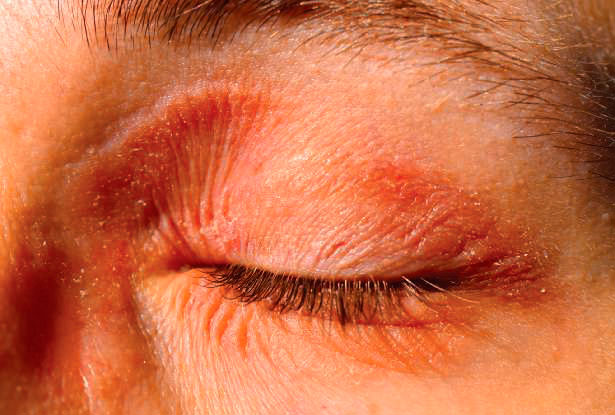Eczema in Cosmetology: Comprehensive Insights and Considerations
Eczema, also known as atopic dermatitis, is a prevalent condition that cosmetologists frequently encounter. While cosmetologists are not medical professionals, they must be well-versed in recognizing and managing the symptoms of eczema within their scope of practice. This article provides an in-depth examination of eczema from the perspective of a beauty professional, focusing on recognizing symptoms, managing skin care for clients with eczema, and best practices for referrals to healthcare providers.

Eczema
Understanding Eczema
Eczema is a chronic, inflammatory skin disease characterized by moderate to severe inflammation, scaling, and, often, severe itching. This condition may manifest differently across individuals but usually appears as patches of dry, itchy, and red skin. These symptoms can be cyclical, with periods of remission and flare-ups.
Atopic eczema, the most common form of the disease, is usually inherited and frequently associated with other atopic disorders like asthma and hay fever. Importantly, eczema is not contagious, meaning it cannot be transmitted through skin contact.
Recognizing Eczema in the Cosmetology Practice
While cosmetologists do not diagnose skin conditions, they should be adept at identifying signs of potential skin issues, including eczema. Common symptoms of eczema include:
- Dry, sensitive skin
- Red, inflamed skin
- Severe itching
- Dark colored patches of skin
- Rough, leathery patches of skin
- Oozing or crusting
Cosmetologists should remain vigilant when conducting skin evaluations, and if any signs of eczema are present, a referral to a healthcare provider should be the next step.

Managing Skin Care for Clients with Eczema
While cosmetologists cannot treat eczema, they can play a vital role in managing a client’s skin condition by recommending suitable skin care products and routines. Clients with eczema typically have sensitive skin that can easily react to irritants and allergens. As such, cosmetologists should recommend mild, fragrance-free products that are less likely to trigger an eczema flare-up.
Regular moisturizing is also essential for clients with eczema as it can help reinforce the skin’s protective barrier, keeping it healthy and hydrated. Cosmetologists can advise clients on the best types of moisturizers for eczema-prone skin, such as ointments and creams that are generally more effective at trapping moisture than lotions.
Referring Clients to Healthcare Providers
In cases where a cosmetologist suspects a client has eczema, they should promptly refer the client to a healthcare provider for an official diagnosis and treatment plan. It’s essential to communicate with sensitivity and care, emphasizing the importance of professional medical advice without causing undue alarm.
Eczema is a common condition that cosmetologists are likely to encounter regularly. Understanding this condition, knowing how to recognize its symptoms, and being aware of the skincare strategies that can help manage it are all key areas of knowledge for beauty professionals. By maintaining clear lines of communication and making informed referrals, cosmetologists can support their clients in maintaining the health and beauty of their skin.






